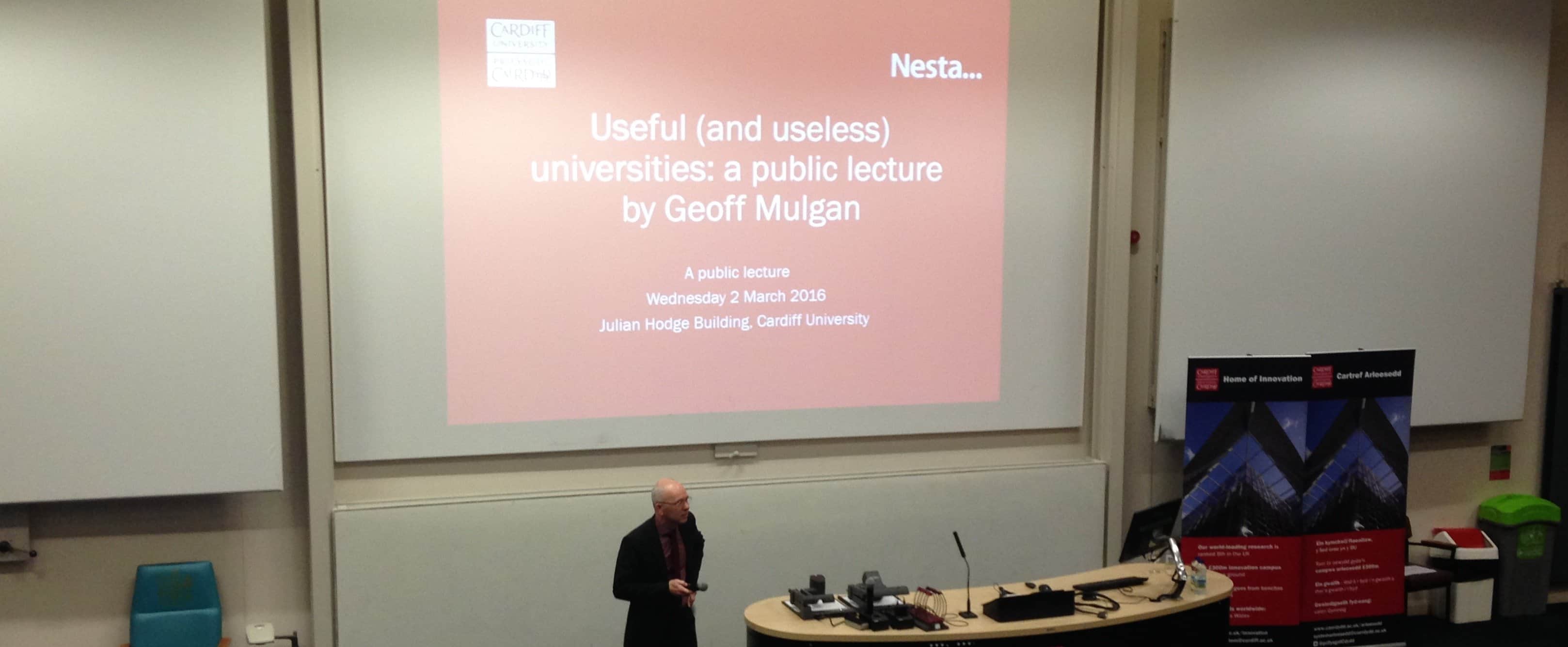Innovation is a hot topic at the moment, so when I found out that Nesta, a charity that works to drive human progress through innovation, were hosting a talk at Cardiff University on how to bring innovation into the university experience, I had to go along. The talk, which took place on 2nd March, was delivered by Nesta’s Chief Executive, Professor Geoff Mulgan MBE, to go alongside a report that discusses the new model of a ‘challenge-driven’ university. In this model, universities harness the brainpower of students to tackle real-world problems for which there are no established answers, creating new knowledge in the process.
As detailed in the report, ‘learning may happen much faster, and more intensively, through engagement with real-world problems, and through embedding learning in relationships’. This, of course, is something that I come across every day when working for Bristol Hub. This year I have had the rewarding job of running one of Student Hubs’ Skilled Placements, the Bristol Hub Social Innovation Programme. This is essentially a consultancy programme, where teams of students work together to tackle a challenge being faced by a local third sector organisation. In this way, students are able to apply the skills they are developing through their university course while building their teamwork, research and problem-solving abilities. Through the programme, students learn to innovate and local organisations are given valuable pieces of work that they would not otherwise have had the capacity to undertake.
This programme is just one example of our approach to student leadership, which engages students in the world through social action. Mulgan noted that ‘only a third of American universities believe that universities are preparing students for the wider world’ and questioned traditional methods of teaching, suggesting that the best learning is achieved by asking questions rather than giving answers. Attributes such as creativity, social intelligence, problem solving and the ability to work in a team are becoming increasingly valued in the graduate marketplace, but this isn’t part of the traditional university curriculum. Empowering students to tackle social challenges themselves can prove an effective way for universities to operate – providing benefits to both students and their communities in the process.
This leads me to the main question posed by Mulgan: what makes a ‘useful’ university? And what is the use of asking useless questions? Universities were historically ‘useless’, designed to be a place to explore and discover. They sat apart from the outside world and ruling powers, so as not to be constrained by them. Yet knowledge for the sake of knowledge cannot be deemed entirely ‘useless’, as often the most important ideas and breakthroughs began as idle curiosity.
This suggests that innovation makes the university ‘useful’ – a significant claim now that universities can no longer be ‘useless’. Today, there are 150 million students globally and universities are becoming integrated into policy making. I would like to see a collaborative approach to research and greater cohesion between university bodies and the communities that they are based in. This would be an important step in embedding social change in higher education.
Looking to innovate? Find your local Hub or talk to us about working together.
You might also like:
Bringing Student Volunteering to Parliament
Student Volunteering: Better than Qualifications?
The future of social action in universities: what can we learn from student leaders?

